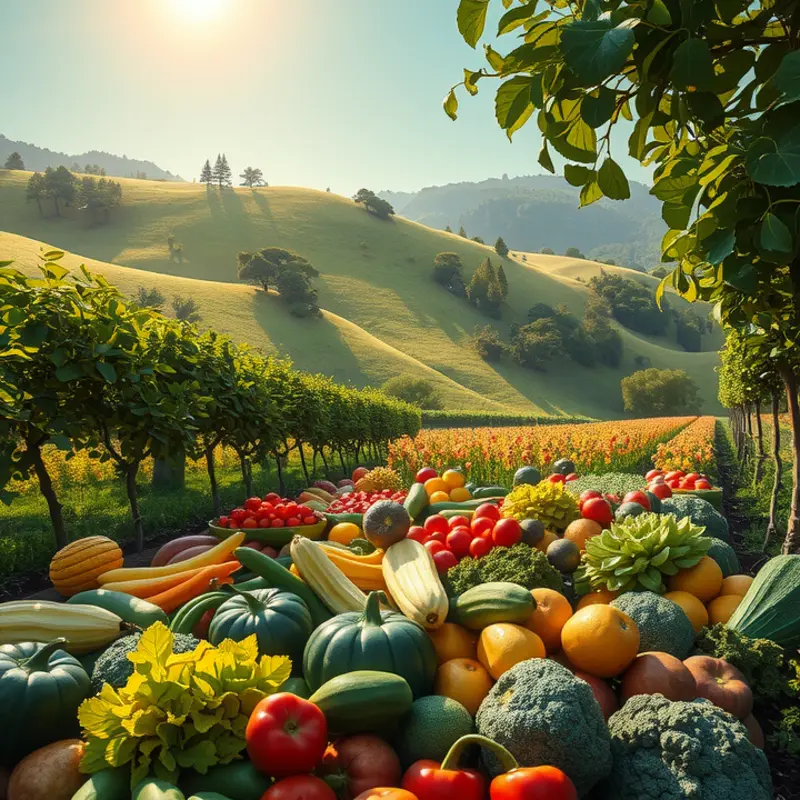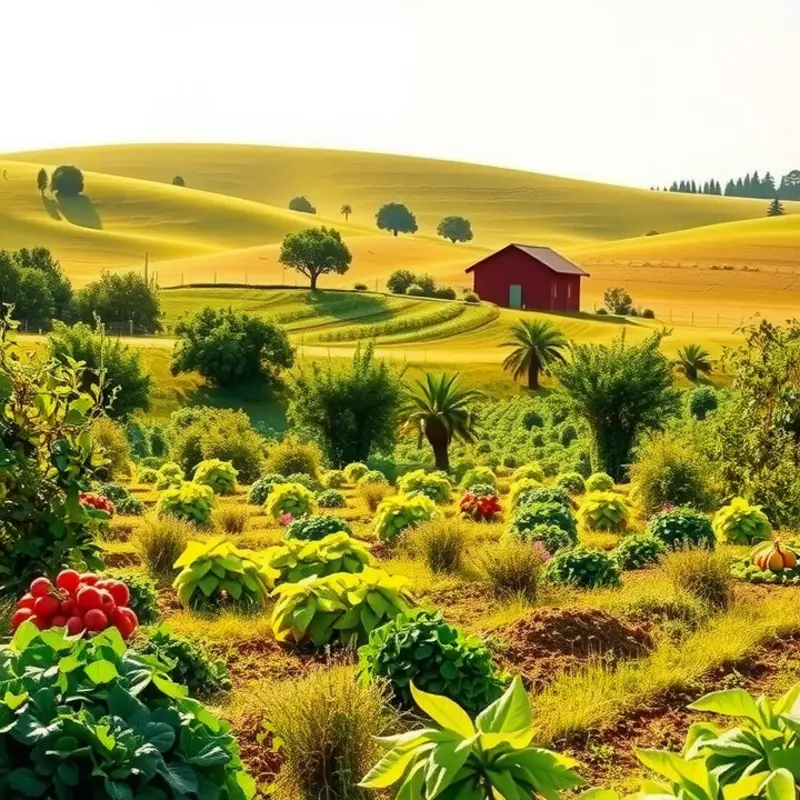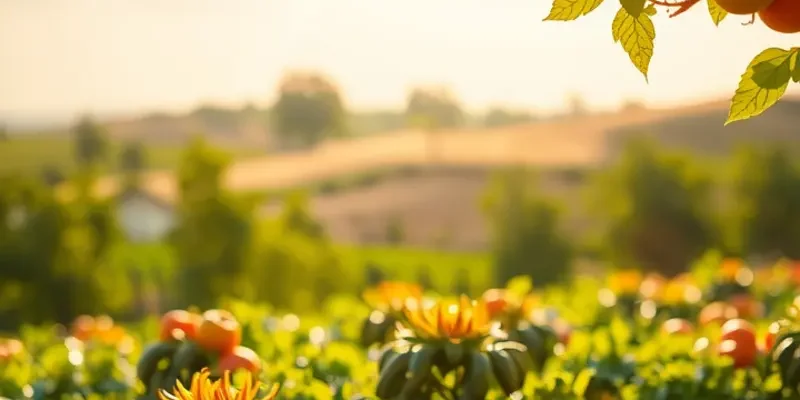The journey towards sustainable eating begins at the source. Ethical seed sourcing is a pivotal aspect that not only preserves biodiversity but also supports the health of our ecosystem. By understanding how to choose ethically sourced seeds and the benefits they provide, you can align your actions with your values. This article aims to guide you through the essentials of ethical seed sourcing, empowering you to make informed, eco-conscious decisions in your culinary adventures.
The Importance of Ethical Seed Sourcing

Ethical seed sourcing is a critical component of sustainable gardening. It begins with the recognition that every seed carries the potential to impact the ecological balance. Choosing ethically sourced seeds can significantly support biodiversity. Diverse plant species offer a variety of genetic resources, crucial for adapting to changing climates and resisting disease.
The primary impact of ethical seed sourcing relates to biodiversity. Industrial agriculture often relies on a narrow genetic base, making crops vulnerable to pests and diseases. In contrast, ethical sourcing promotes the cultivation of heirloom and open-pollinated varieties. These seeds are not only genetically diverse but also adapted to local ecosystems, which helps maintain a stable environment. By planting these seeds, gardeners preserve rare species and contribute to an ecological balance.
Ethically sourced seeds also enhance food sovereignty. This concept emphasizes the right of people to access and control their food supply. Many hybrid seeds are patented, tying farmers to specific suppliers. Ethical seed sourcing, however, supports seed exchange networks and seed banks that allow communities to save their own seeds. This practice ensures that local populations can sustain themselves without depending on corporate-run seed companies.
Furthermore, ethical seed sourcing can mitigate the effects of climate change. Diverse and locally adapted seed varieties enhance resilience against weather extremes. For example, certain drought-resistant varieties can endure dry spells better, ensuring food production continuity. The more adaptive the seeds, the better they can cope with shifts in climate patterns. Consequently, seed diversity acts as an insurance policy for global food security.
Individuals can make a tangible difference by opting for seeds that are certified organic or sourced from trustworthy, small-scale growers. This choice contributes to reducing carbon footprints, as organic farming practices often use fewer resources. Additionally, home gardens set up with ethically sourced seeds can become part of a larger carbon drawdown strategy, as plants absorb carbon dioxide during photosynthesis.
Beyond the environmental impact, ethical seed sourcing plays a role in preserving rich agricultural traditions. Many seeds carry cultural significance, holding stories and traditions that span generations. By choosing heirloom seeds, gardeners partake in the preservation of cultural heritage, ensuring these histories are not lost in the face of globalization.
Ultimately, the choice to source seeds ethically connects individuals and communities to a larger network focused on sustainability. Those interested in enhancing these efforts might explore eco-aware cooking strategies, which can be found through guides on responsible consumption methods and their holistic impact. Through every seed sown, gardeners can actively participate in a movement that aligns their lifestyles with the principles of ecology and responsibility, fostering an interconnected effort towards a healthier planet.
Practical Steps for Sourcing Ethically

Ethical seed sourcing starts with research. Arm yourself with knowledge about the companies providing your seeds. Investigate their business practices, environmental policies, and community involvement. Look for companies that prioritize sustainable agriculture and transparency in their operations. Reading customer reviews can also provide insights into a company’s reputation and reliability.
Understanding seed labels is crucial. Labels provide a wealth of information, including whether seeds are organic, non-GMO, or heirloom. Organic seeds are grown without synthetic fertilizers or pesticides, minimizing environmental harm. Non-GMO labels indicate seeds have not been genetically altered, promoting natural biodiversity. Heirloom varieties, often passed down through generations, are open-pollinated and help preserve genetic diversity, an invaluable asset in sustainable farming.
When choosing seeds, consider heirloom varieties. These seeds have been cultivated naturally over generations, adapting to local climates and soil conditions, increasing their resilience and suitability for eco-friendly cultivation. Heirloom seeds also hold cultural significance, as they often reflect the agricultural history and traditions of a region. By planting heirloom varieties, you contribute to preserving agricultural heritage and biodiversity.
Consider joining seed-saving groups or networks. These communities offer invaluable knowledge sharing and access to a diverse selection of seeds. Engage with local seed libraries or exchanges to obtain seeds adapted to your regional conditions, ensuring optimal growth and sustainability. Participating in these networks not only enriches your seed selection but also supports community-driven sustainability efforts.
Paying attention to climate conditions is essential when sourcing seeds. Different seed types thrive in varying climates and soil types. Research which crops best suit your region’s conditions to maximize success and sustainability. Opting for plants native or well-suited to your climate reduces the need for excessive watering and chemical interventions, preserving vital ecosystems.
Maintaining an eco-friendly garden extends beyond seeds. Implement practices such as composting, mulching, and companion planting to nurture your plants and environment sustainably. These methods promote healthy soil, reduce waste, and naturally control pests, creating a balanced and thriving garden ecosystem.
Educate yourself on broader sustainable agriculture practices by exploring resources and expert advice. This knowledge not only aids in your seed sourcing efforts but also enriches your overall gardening or farming practices. Your journey towards ethical seed sourcing has the power to empower not only your garden but your local community’s welfare and the global environmental stewardship efforts.
For more insights on sustaining eco-friendly practices in your daily life, explore eco-aware cooking strategies.
Final words
Embracing ethical seed sourcing is not just a personal choice; it’s a commitment to creating a healthier planet. By choosing seeds that support biodiversity and sustainability, you’re actively participating in a revolution for the environment. Each seed planted is an investment in the future of our food systems, reflecting values of integrity and responsibility. Remember, every step counts towards a more sustainable future, starting right in your own backyard. Choose wisely, grow passionately, and support a movement that cherishes nature and nourishment.








